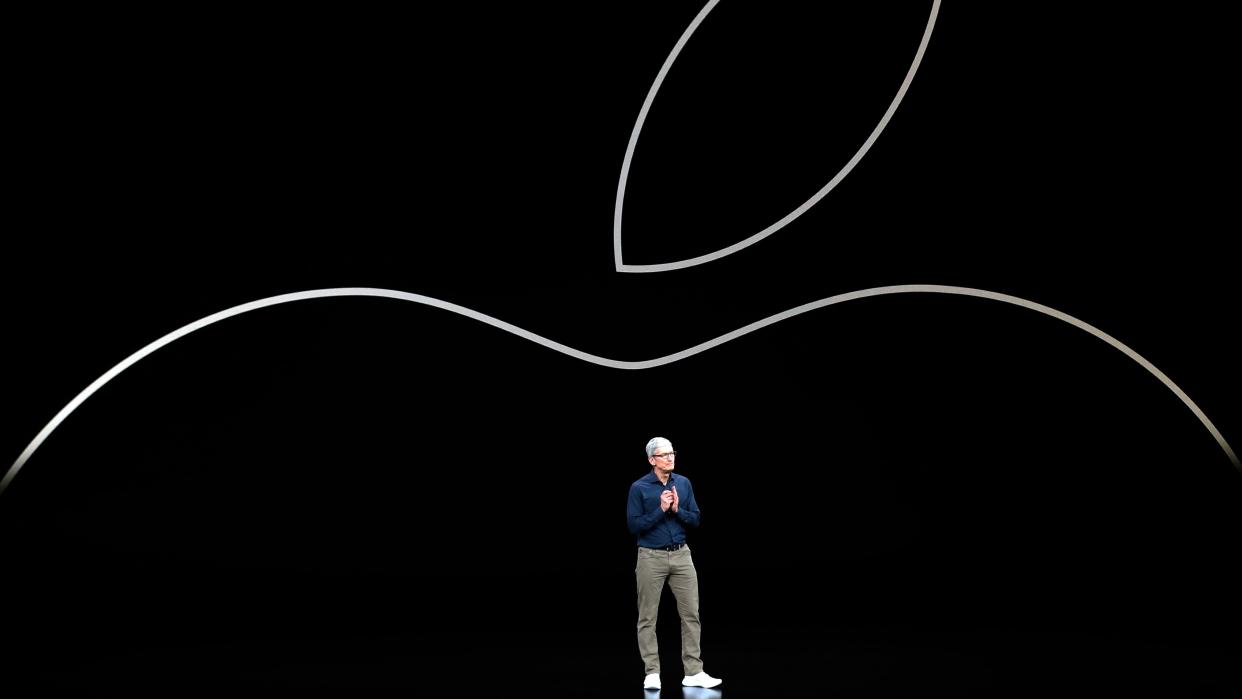Apple is reportedly being a huge prude with its TV shows

Apple’s mythical entertainment business is finally starting to take shape, and that shape is anodyne, family-friendly, and thoroughly non-confrontational.
CEO Tim Cook and his company are consciously avoiding producing any television content with gratuitous sex, violence, or profanity, according to a report in the Wall Street Journal. Agents and producers around Hollywood are all telling the same tale: Apple wants to make TV, but only if it’s inoffensive and thus won’t tarnish the wholesome company brand.
No sex, violence, or profanity would rule out most TV shows that end up on HBO, and many on Netflix—with whom Apple is now a competitor for content. Apple is instead taking an approach much closer to that of US broadcast television networks like NBC and ABC, which are restricted by federal laws prohibiting “obscene content,” and tend to gear programming more toward an older audience than those who watch shows mostly on premium cable and the internet. (Some members of Apple’s team have reportedly dubbed the effort “expensive NBC,” the Wall Street Journal reported.)
On the surface, Apple’s content strategy makes sense. The company’s biggest business, of course, is selling phones and computers, and while it’s long demonstrated an interest in breaking into the entertainment sphere, it wouldn’t do anything to seriously jeopardize its $1 trillion technology operation. No one expected Apple to start making TV and immediately become HBO, whose prestige dramas and comedies often include extreme violence and nudity.
But it’s not only the gratuitous stuff that Apple seems afraid of. Based on the Wall Street Journal report, the company appears loathe to make anything that might offend or alienate potential phone buyers.
Apple reportedly replaced the showrunners on a reboot of Steven Spielberg’s Amazing Stories sci-fi anthology series after it found their vision of the show “a little dark.” Company executives would only agree to greenlight a series about a grieving couple, from horror maestro M. Night Shyamalan, if crucifixes were removed from the couple’s house. (Those working on the project told the Wall Street Journal that Apple wasn’t interested in political or religious subject matter.) Apple also has apparently run into a number of problems on its buzzworthy morning talk-show drama starring Reese Witherspoon and Jennifer Aniston: The showrunner for that series got replaced when Apple “took exception to some of the humor proposed,” the Wall Street Journal reported.
The company even censored parts of Carpool Karaoke (the series based on a popular James Corden segment in which the late-night comedian hosts singalongs with celebrities in his car) and Planet of the Apps (the Shark Tank-like reality show in which software makers pitch their apps to a panel of potential investors). It’s clear from the Wall Street Journal’s reporting that Apple isn’t just concerned about gratuitous violence—it’s concerned about even the most innocuous of R-rated content and adult themes. (We’ve reached out to Apple for its response to the report.)
Just in case Apple’s strait-laced programming vision wasn’t already clear enough, it made deals with Oprah Winfrey and Sesame Workshop (the nonprofit group that produces Sesame Street) to make shows for families and children. Apple also ordered a “comedy series” about the early life of American poet Emily Dickinson, whose life was anything but a comedy.
Apple’s content strategy is considerably different from that of Amazon’s, despite the two corporate behemoths’ shared goal of developing TV shows in order to supplement their main business of selling products to consumers. But Amazon is decidedly less brand conscious. It streams a number of shows with violence and nudity, and is currently preoccupied with replicating the success of one of television’s most popular—and violent—shows, HBO’s Game of Thrones. Apple’s relatively safe, boring approach to TV would appear to mirror its recent suite of tech products, which have left Quartz deputy tech editor Mike Murphy unimpressed.
The closest analog in the entertainment business is probably Disney, whose upcoming streaming service will reportedly not include any R-rated films, in an effort to maintain the Mouse House’s pristine family-friendly image. Disney, however, has a very large advantage in that it’s already the most successful (and arguably most trusted) entertainment company in the history of civilization. Apple, meanwhile, is a total TV novice.
Sign up for the Quartz Daily Brief, our free daily newsletter with the world’s most important and interesting news.
More stories from Quartz:

